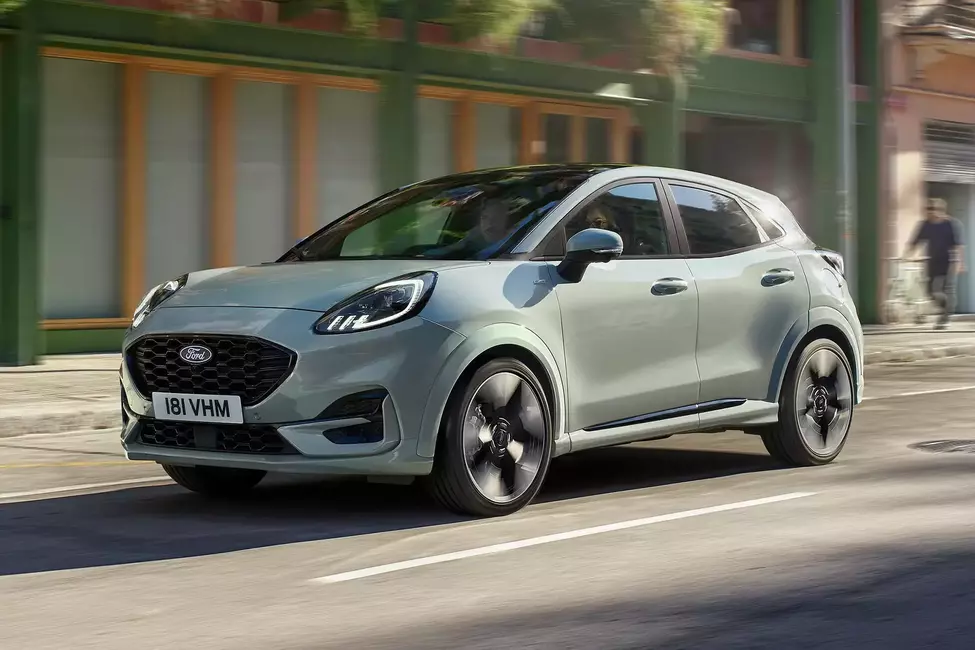What happens at the end of a PCP finance agreement?

What happens at the end of a PCP finance agreement?
Is your PCP finance deal nearly at an end? Here are your options for what to do next.
When your Personal Contract Purchase (PCP) agreement finishes, you’ll have several choices about what to do next. Which one is best for you depends largely on your circumstances and whether you want to keep the car or give it back. But there are other factors that could influence your decision. Broadly speaking, you’ll have three options when your PCP deal comes to an end:
- Buy the car. You’ll have to pay a final lump sum, known variously as a balloon payment or optional final payment, as per your agreement at the start of the deal. Do this, and you are now the car’s owner. You can refinance this final sum if you want to.
- Trade your car in for a new one. Many dealers will let you trade in your current car to get a new one. It could be that your current car is worth more than the optional final payment, in which case you’ll have a surplus that you can put towards the deposit on your next car. This can reduce your future monthly payments.
- Give the car back. You can simply hand the car back, and that’s the end of it, with nothing else to pay unless you have excess mileage or damage charges. However, if the car is worth more than the optional final payment, it’s likely to be a financially better idea to make that payment and then sell the car privately.
How does PCP work?
PCP finance splits the purchase of a car into three chunks. You pay a deposit up front, and then a fixed monthly payment for the duration of the contract. The larger the deposit, the lower the monthly payments. Opting for a longer contract is also likely to lower the monthly payments.
Throughout this time, the car is owned by the finance company. At the end of the contract, you can make an optional final payment to complete the purchase and own the car. Alternatively, you can return the car, or trade it in for another one.
Option 1: Buying a car at the end of a PCP finance deal
Once all your monthly payments have been completed, if you want to become the car’s owner, you can complete the deal by making the final optional payment that you agreed to at the start of the contract.
As the car’s owner, you won’t face charges for damage or excess mileage.
Can’t afford the full optional payment? You can often refinance, usually by taking out a new hire purchase (HP) contract. However, this will mean that you don’t own the car until you’ve made the last monthly payment on the new HP deal. Unlike a PCP contract, there’s no final payment on an HP agreement.
It’s often the case that the car is worth more than the optional final payment, which means there’s equity in it. In this case, it’s probably a good idea to buy the car, even if you don’t intend to keep it, because you can then sell it for a higher amount. You may not have to find the money upfront – finance companies are generally fine with you selling the car at the end of the agreement, as long as you check with them first and let any buyer know that there’s outstanding finance.
The easiest way to do this is through a car dealer – they can settle the outstanding finance and give you back any surplus.
Option 2: Trading in your car at the end of a PCP agreement
If you trade your car in at the end of a PCP deal, you’ll slip almost seamlessly from one car to the next.
Most car dealers will accept your existing car, settle the outstanding final payment and set up a new finance deal, keeping disruption to a minimum. They’ll probably be able to arrange for one car to be picked up on the same day that the other is dropped off, meaning you’re not stuck without a car.
And there’s no need to stick with the same dealer or manufacturer – you should be able to trade in your existing car for any other new or used car if you go through a dealer.
When you trade your car in, you’ll get a valuation from the company buying it. If that valuation is higher than the optional final payment that was agreed at the start of the PCP deal, the surplus cash can go towards the deposit on your new deal, which will reduce your monthly payments. Alternatively, you can just pocket the cash.
If the value is lower than the optional final payment, you may want to reconsider trading your car in. If you do, you’ll have to pay the difference to your existing finance company to settle the contract. You’d be better off just returning the car with nothing to pay – that way, the low value of the car is their problem, not yours.
Option 3: Returning your car at the end of a PCP deal
If you don’t want to keep your car at the end of the deal, you can just hand it back. Make sure you let your lender know in advance, as they’ll need to arrange an inspection and collection.
Make sure you have all the original documents to the car, including the handbooks and the V5C registration document. Check that everything that came with the car is still there, including spare keys, the spare wheel and the parcel shelf, and make sure the car is clean and ready for inspection when collection is arranged.
The lender will inspect the car to make sure everything is in good order. If the weather or light levels don’t allow inspection, it may be postponed. Note that if the car’s not clean enough to allow proper checks for damage, you may be hit with a surcharge.
The inspection will be conducted according to industry guidelines, namely the fair wear and tear standards according to the British Vehicle Rental and Leasing Association. You’ll likely have been given a copy of those at the start of your contract. Any damage beyond reasonable wear and tear will result in a charge to fix it.
There could also be charges for excess mileage, if you’re gone beyond the mileage agreed at the start of the contract. This is usually 10p per mile or less, but can be as high as 30p per mile. Any missing documents or equipment will also incur a charge.
After the inspection, any damage or missing elements will be itemised, and you’ll need to sign a checklist to accept the findings. If there’s anything extra to pay, you’ll be told within four weeks, and you can dispute any charges that you think are unfair.
How to avoid extra charges on your PCP agreement
There are some obvious ways to avoid extra charges at the end of your PCP deal – don’t lose any bits of the car, don’t damage it and don’t go over the agreed mileage.
Of course, life isn’t that straightforward. If, for whatever reason, you feel like you’re going to exceed your mileage allowance, it’s worth letting your lender know. They might be able to change your monthly payments to take the larger mileage into account, meaning you don’t have a big final payment at the end. It’ll likely work out cheaper overall.
Around 10 weeks before the end of your contract, check your car carefully, screening every panel and wheel in daylight for damage. It may be cheaper to get any issues fixed yourself, rather than pay damage charges. The finance company will often give you a few cost examples for you to calculate how much those charges might be.
Browse our most popular models

24/09/2024
Best Car Deals for New and Used Cars
Whether you're looking for the best PCP deal, huge savings with a great car leasing deal or car finance discounts, we’ve searched to find the best car deals for you.
Best 0% APR Car Finance Deals
If you're looking for a 0% car finance deal on a new car, you've come to the right place. We've searched to find the best 0 interest finance car deals out there to help you save money.
Best PCP Car Deals
Personal Contract Purchase (also known as PCP) could allow you to get your hands on a new car without needing to stump up a significant sum of cash all at once. And to help you out, we've rounded up all the best PCP car deals on offer in the UK today.
Promotions
Trustpilot Reviews
Get our latest advice, news and offers
Keep me updated by email with the latest advice, news and offers from heycar.
By submitting you agree to our privacy policy














